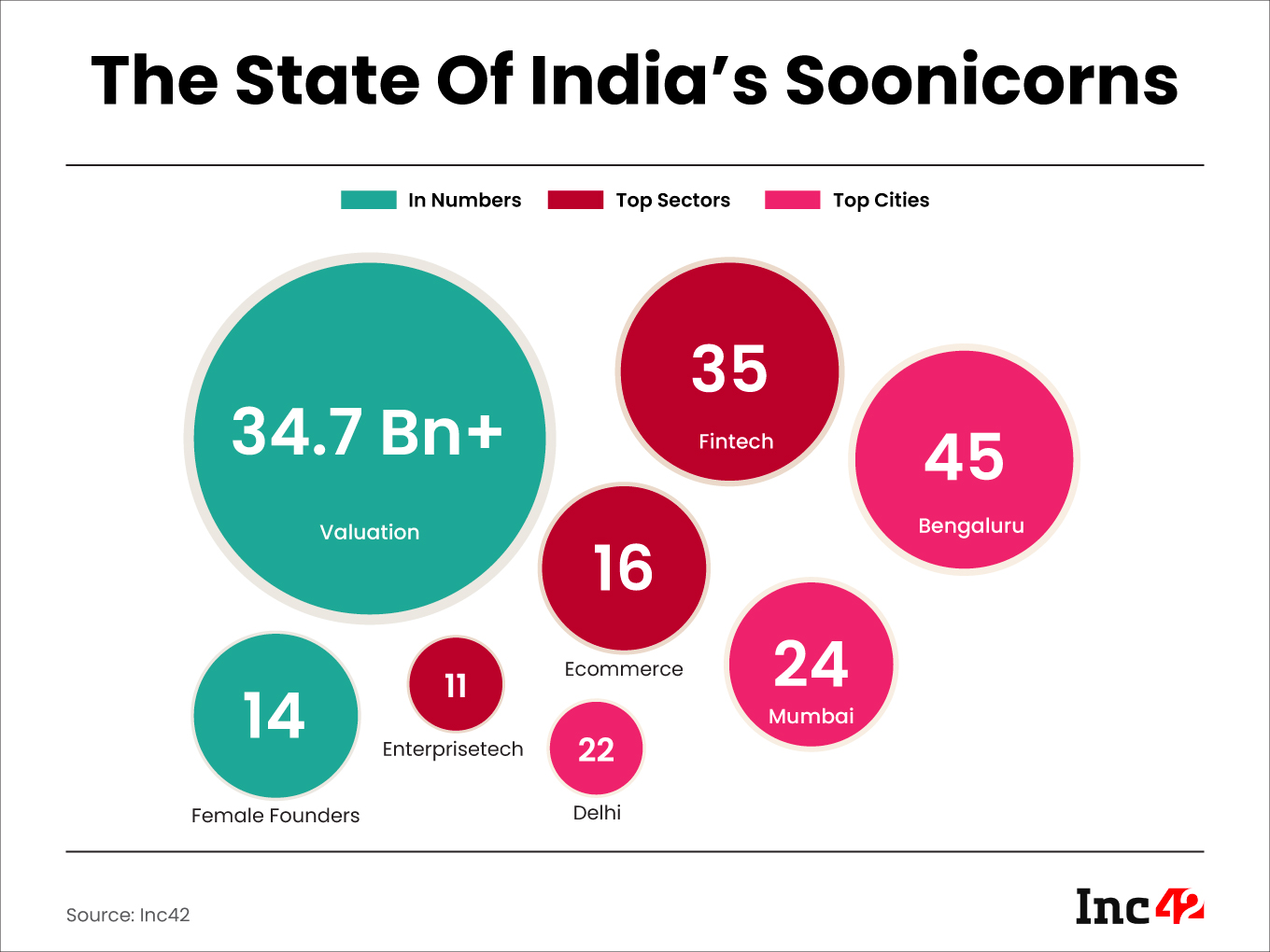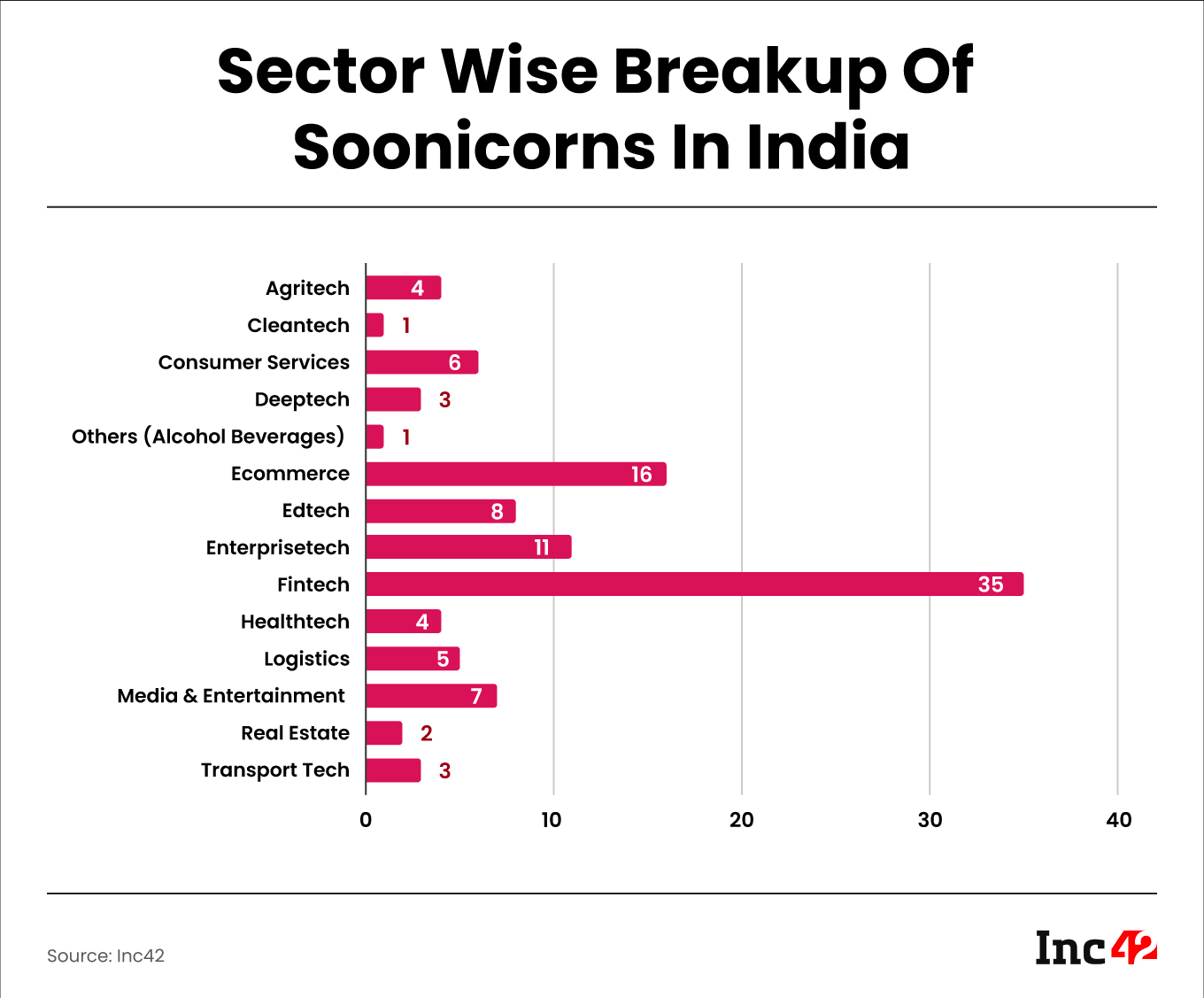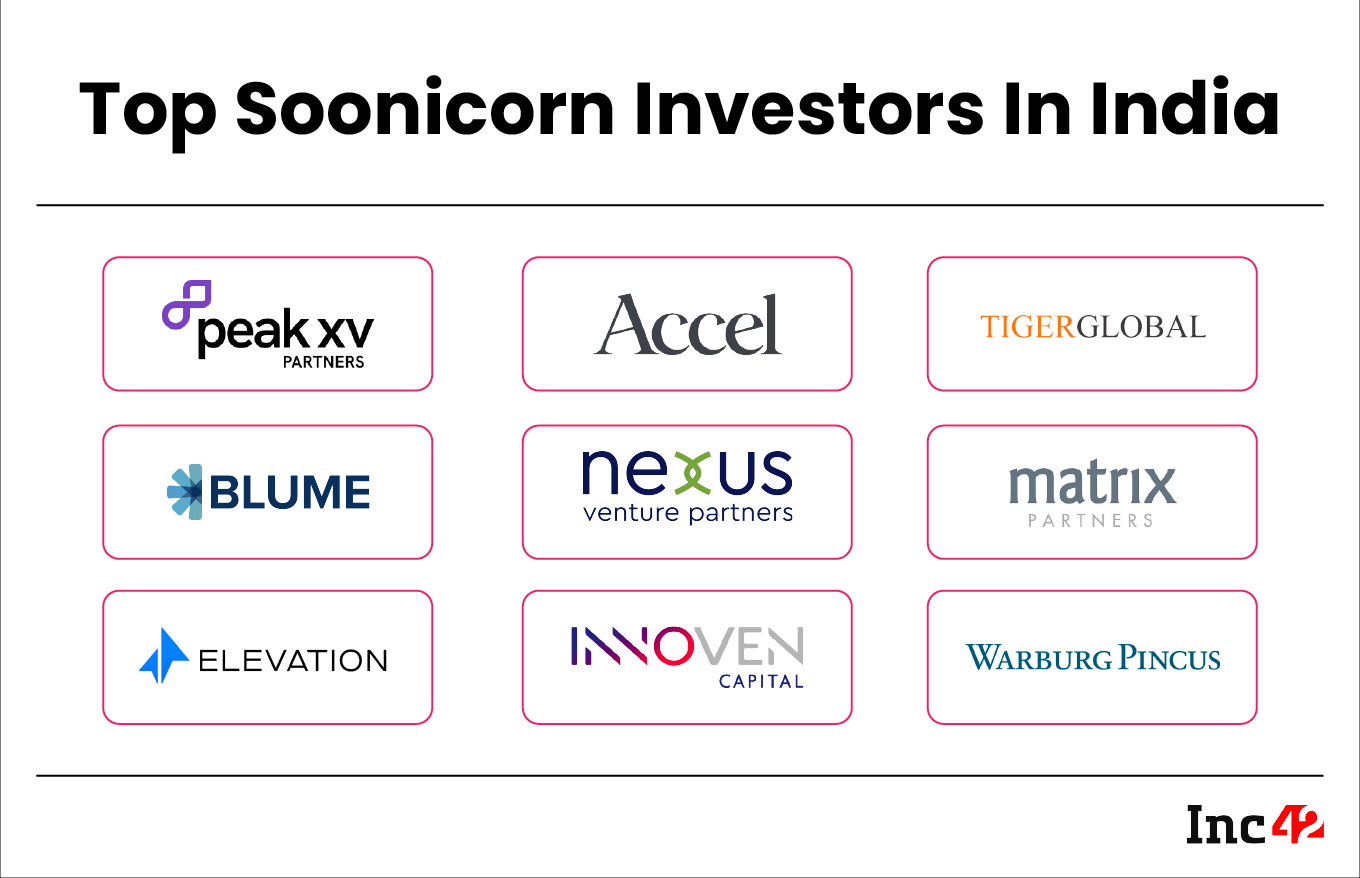What Is A Soonicorn?
A soonicorn refers to a startup that is rapidly growing and has the potential to reach a valuation of $1 Bn in the near future.
How Is It Different From A Unicorn?
A unicorn is a startup that has already achieved a valuation of $1 Bn. However, Inc42 considers soonicorns to be startups with valuations surpassing $300 Mn but those that have not yet reached the $1 Bn mark. Currently, there are 106 such companies in India.
What Is The State Of Soonicorns In India?
According to Inc42’s analysis, with 35 soonicorns, fintech tops the list, indicating the massive potential of India’s fintech segment in revolutionising how Indians borrow, transact, get insurance and much more. This is followed by ecommerce at 16 and enterprise tech at 11 soonicorns.
The list of soonicorns includes startups from various industries and backgrounds. For example, founded in 1999, Mumbai-based events and ticketing platform BookMyShow is the oldest startup on the list, while Fino Payments Bank and Infibeam are publicly listed companies that have managed to achieve the soonicorn status.

What Are The Characteristics Of A Soonicorn?
A soonicorn is a fast-growing startup with the potential to become a unicorn. It exhibits high growth potential, introduces innovation, has a scalable business model, captures investor interest, operates in a market with strong demand and shows potential for significant valuation growth.

What Are The Risks Associated With Soonicorns?
Amid the funding winter, investors are warning against chasing high valuation that had been the norm for most promising ventures in 2020-21. They emphasise the need for startups to maintain a focus on first principle thinking and culture building rather than raising large funding rounds.
Currently, the most significant challenge for startups lies in talent acquisition and retention and promising startups are seeking to expand their workforce to prepare for future battles. However, there is a risk that some of these startups may lose momentum and be forced to reduce costs and lay off employees down the line. This concern is exemplified by the layoffs witnessed in certain soonicorns, such as edtech startup Teachmint, healthtech platforms Practo and HealthifyMe, and Dunzo, which have downsized their workforce since 2022.
Consequently, there is a noticeable shift in mindset from pursuing growth at any cost to prioritising sustainability. Most startups now aim to cultivate long-term resilience rather than solely focussing on competing for high valuations.









